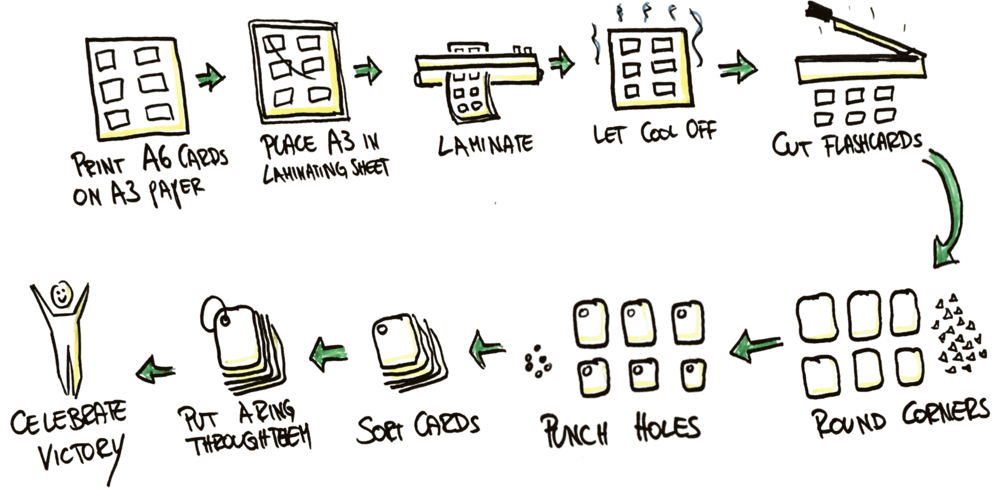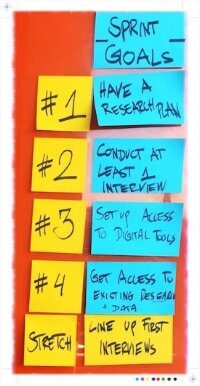Pragmatic Insights
From post it to prototype - Agile Tour 2018
Last week we were honoured to run a workshop at Agile Tour. Our workshop posed the challenge to attendees to go “From post it to prototype in 90 min”. Could we go from problem statement to paper prototype and introduce a product delivery framework, a simulated scenario and a toolkit of techniques to use?
Should we turn around?
There is a common trend for teams to push ahead with partially completed work, irrespective if it no longer aligns to our goals. It feels counter intuitive to halt this work, but if done in a conscious and informed manner, I encourage teams to have the brave and open conversation about whether they are still aligned to their goals.
Connect the dancefloor with the balcony
Too often teams feel disconnected from their leaders and the company's strategy and vision.
We need to put a focus back on connecting the dancefloor with the balcony.
Agile is Not a Destination
Think about your Agile environment. Have you implemented your version of Agile and stopped there, content that you're done? Have you focused on what Agile is actually about? In this blog post I'll share my views on what Agile is, and more importantly, what Agile is not.
Transform 2017 Conference
Today Web Directions launched Transform 2017, Australia’s Digital Government Conference, to be held in Canberra late March.
I’m excited to be representing Pragmateam's transformation experiences in two parts.
Giving Back to the Community
Learning and sharing is a key ingredient within Pragmateam’s culture. While we have a very healthy internal shareback rhythm (more about this later) we also actively seek ways to give back to the community, sharing our techniques, experiments and learnings.
2 Years In - Our Observations
September marked the 2 year anniversary of Pragmateam. It felt timely to reflect.
While I wouldn’t say every day over the last 2 years has been smooth sailing (we would be bored, unhappy and missing a lot of great lessons for life if it were), as company directors there are a few key principles Juliano and I have subconsciously adopted which I believe have assisted us to stay on course.
Working with Government - Myth Busting
On October 27th, Digital Transformation Agency hosted Market Ready panel, in conjunction with the Spark Festival, a festival held throughout startup hubs across Sydney.
Partnering with Hey You - Agile within a Startup
Hey You features in the Financial Review, a write up by Hey You co-founder Rebekah Campbell on the positive impacts of the improvements introduced through partnership with Pragmateam.
6 Agile Principles I Learnt whilst Laminating
I recently found myself working with Sarah on a mini-production line with the goal to laminate a new sets of flashcards which we use during workshops. The setup was pretty simple…
What was the Return on (time) Investment?
In the spirit of continuous improvement, we should always be actively seeking feedback, opportunities to do better next time.
At Pragmateam we believe in learning and improving so much so that we have captured a number of OKRs around learning culture, one specifically regarding meetings, workshops and sessions.
Sprint Planning - A Straightforward Conversation
Sprint Planning is one of the well-known “ceremonies” within the Scrum framework. While at Pragmateam we absolutely see the value in planning, we typically approach Sprint Planning from a perspective of flow. The question we want to answer during sprint planning: How do we use the weekly/fortnightly conversation to continue the momentum of the previous sprint?
Agile - The Why, The How, The Who
There are many interpretations of “Agile”, varying processes and methodologies, such as Scrum or Kanban. However, the implementation of Agile techniques and practices needs to be contextual to the environment and constraints. A purist implementation will be at the detriment of the organisation. As such, teams are encouraged to consider Agile a toolkit and apply relative to the problem they are looking to solve.
The Retro Challenge - Why a 'slow' sprint is a great opportunity
Instead of a reason not to run a retro, a slow sprint can be a tremendous opportunity: How often does your team take the time to reflect on topics outside of the regular sprint activities?
Spice up your Retro - A challenge to all practitioners
Few in the Agile world would disagree that Retrospectives make up an essential part of Agile. It is anchored in the Agile Principles as “At regular intervals, the team reflects on how to become more effective, then tunes and adjusts its behaviour accordingly.”
Why creating a Team Charter is so important for high-performing teams
Every workshop we do to kick off a project has some aspect of team building in it. The main reasons of course are to allow people to get to know each other, to feel comfortable working with each other, and to break the mould of the day-to-day. Sarah has previously written about the ROI of icebreakers.
Breaking through Icebreakers
As facilitators we have many tips and tricks in our toolkit. But of them all, “icebreakers” tend to get the most apprehensive reaction (myself included). Typical perceptions of icebreakers may be that they are a waste of time, too abstract, too fluffy. Also, given the creative nature of icebreakers, people can feel uncomfortable in putting themselves out there through whatever the chosen activity is.
An Agile Coach is not just about coaching (part 2)
In part 1 of this blog post, we explained that coaching is a 4-stage process which reflects the team's agile maturity. The stages are Educate, Show, Mentor and Support. Let's now focus on why delivery-oriented coaching is more valuable than coaching teams from the sidelines. Delivery-orientated coaching means showing things rather than talking about them.
An Agile Coach is not just about coaching (part 1)
"Agile Coach" is an extremely overused term today: it seems like every company wants one and lots of people refer to themselves as that. But what does it actually mean? An external consultant? The iteration manager (aka Scrum Master)? The person who facilitates collaborative workshops? An agile project manager? A trainer talking about agile? Someone who visits once a week and advises the team?
Guiding Principles - Team, Planning & Efficiencies
Recently workshopping with one of our clients, we were asked to take the attendees back to basics, "what does Agile look like"? As you can imagine, this is a pretty broad sweeping question with many possible answers. Below are the lo-fi props we used to conduct the workshop.




















